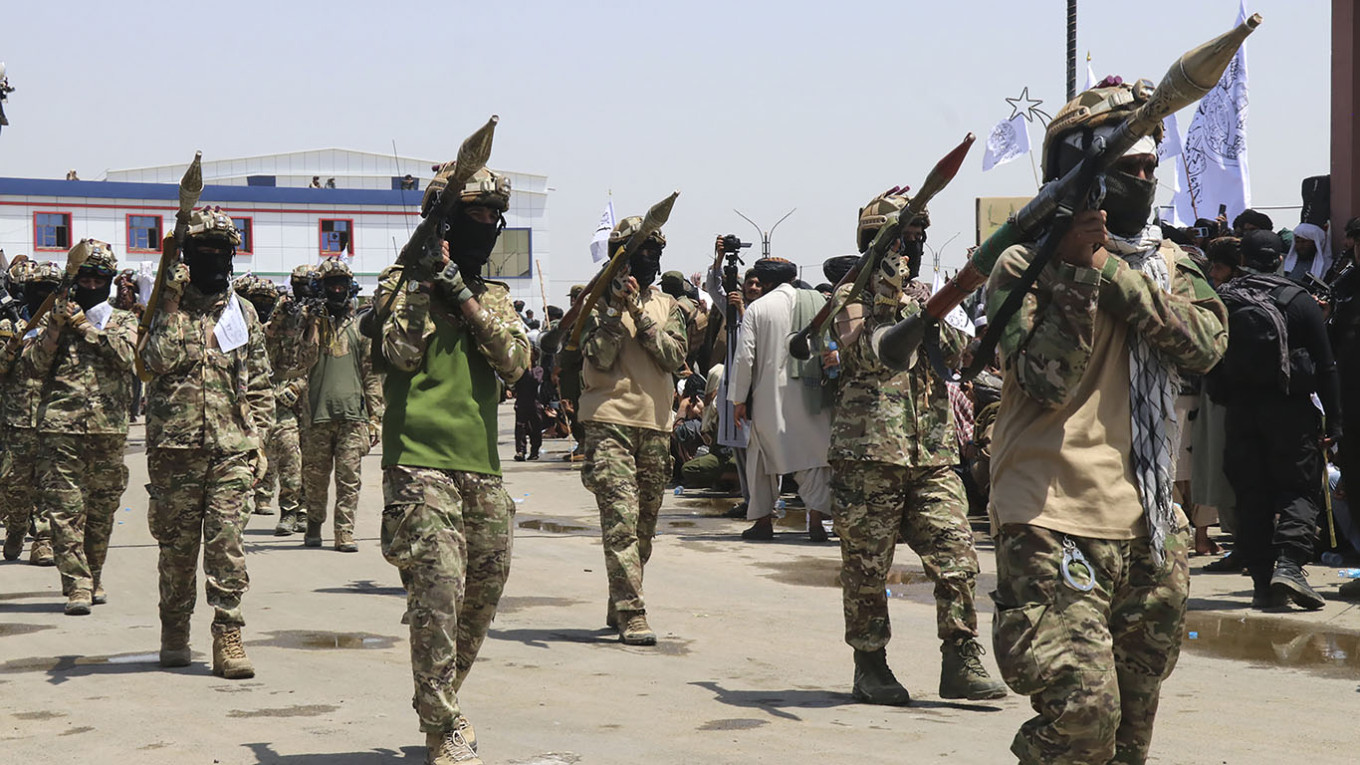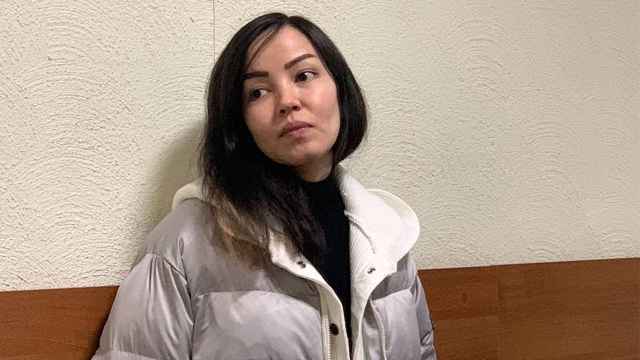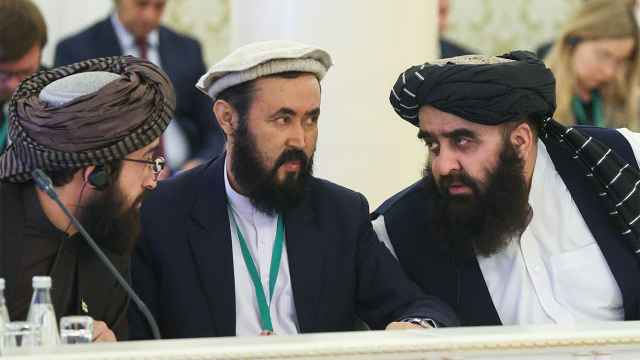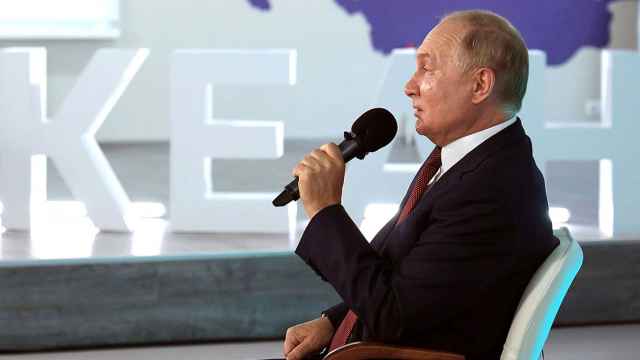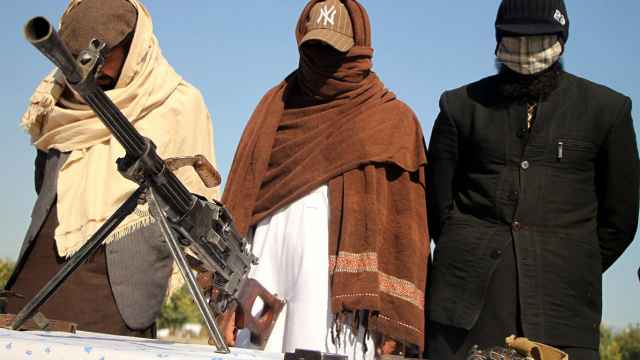Russia’s GRU military intelligence agency paid tens of millions of dollars to militant groups in Afghanistan to target U.S., allied and Afghan military forces in the years leading up to the U.S. withdrawal from the country, according to a report by The Insider investigative outlet published Wednesday.
The Insider’s findings corroborate a 2020 report by The New York Times, citing U.S. officials, that Russia paid bounties to the Taliban to kill U.S.-led coalition troops in Afghanistan. Washington later said it had “low to moderate confidence” in the claims, while Moscow denied the reports.
The Insider cited anonymous former Afghan intelligence (NDS) officials as saying that the years-long GRU-Taliban program paid an average of $200,000 per killed U.S. or coalition soldier, with smaller payments for killed Afghan troops.
Russia’s total payout to the Taliban through the operation totaled approximately $30 million, one former NDS official estimated.
The outlet linked the operation to GRU Unit 29155, which has reportedly been behind numerous poisonings, bombings and other covert destabilization efforts in the West.
Unit 29155 reportedly recruited at least three networks of Afghan nationals to act as intermediaries between it and illegal armed groups in Afghanistan.
The program was said to have started from at least 2015 and “kicked into high gear” around 2016, when Donald Trump was elected to his first term as president.
Following the 2020 New York Times report, Democrats pointed to the reports as evidence that then-President Trump was failing to stand up to Russia.
But apart from the issue being brought up during a January 2021 call between Presidents Joe Biden and Vladimir Putin, the U.S. did not take specific action against Russia over the reported operation.
Six former CIA officers who have analyzed the intelligence on the GRU’s Afghan operations told The Insider that the findings “complement and amplify what has been the conventional wisdom of the U.S. intelligence community over the past four years — a conventional wisdom that has often been undermined or occluded by politicized agendas.”
“There are many instances when we got punched in the face and were told to do nothing about it for fear of escalation,” one former CIA officer told the outlet. “This was one.”
The U.S. completed its withdrawal from Afghanistan in 2021 in a chaotic pull-out that drew derision from Russia. The Taliban swept to power soon after Afghanistan’s U.S.-backed government collapsed.
Moscow has since strengthened its partnership with the Taliban despite the group’s status as a banned terrorist organization in Russia.
The Insider claimed that the GRU officer in charge of the GRU-Taliban program continues to act as a “critical backchannel interlocutor” negotiating intelligence and military cooperation between Moscow and Kabul.
A number of other operatives involved in the operation were granted Russian passports and identities following the U.S. withdrawal from Afghanistan. The Insider’s investigative partner Der Spiegel found that some stayed in Russia, while others settled in India and even western Europe.
A Message from The Moscow Times:
Dear readers,
We are facing unprecedented challenges. Russia's Prosecutor General's Office has designated The Moscow Times as an "undesirable" organization, criminalizing our work and putting our staff at risk of prosecution. This follows our earlier unjust labeling as a "foreign agent."
These actions are direct attempts to silence independent journalism in Russia. The authorities claim our work "discredits the decisions of the Russian leadership." We see things differently: we strive to provide accurate, unbiased reporting on Russia.
We, the journalists of The Moscow Times, refuse to be silenced. But to continue our work, we need your help.
Your support, no matter how small, makes a world of difference. If you can, please support us monthly starting from just $2. It's quick to set up, and every contribution makes a significant impact.
By supporting The Moscow Times, you're defending open, independent journalism in the face of repression. Thank you for standing with us.
Remind me later.


